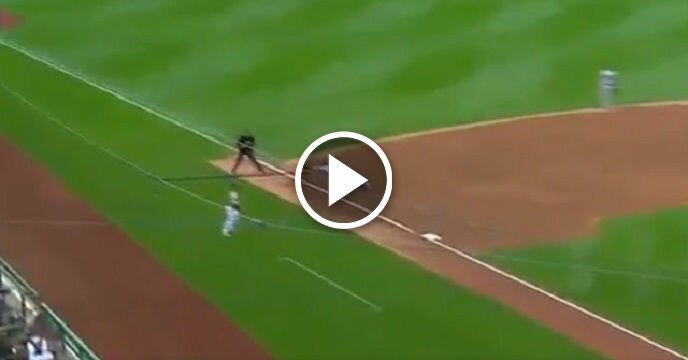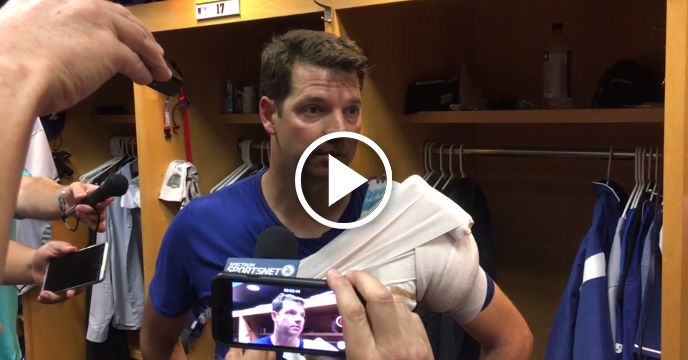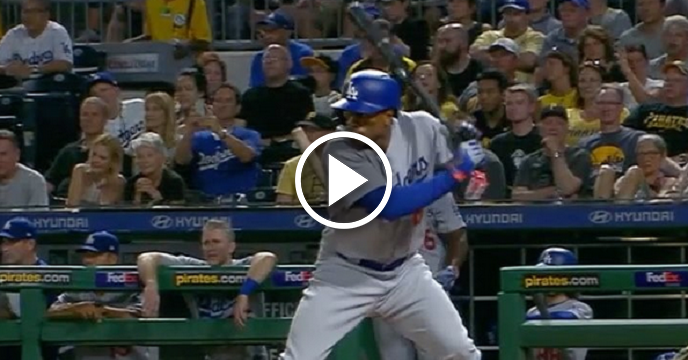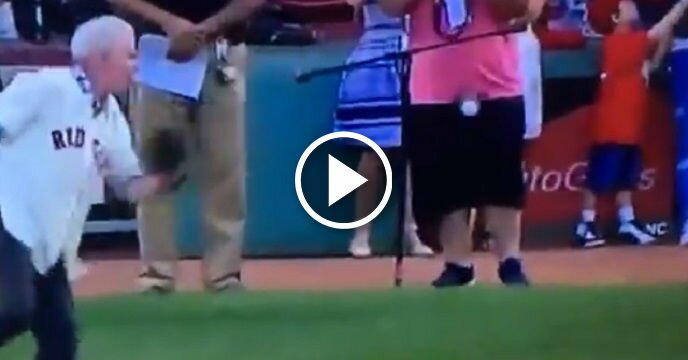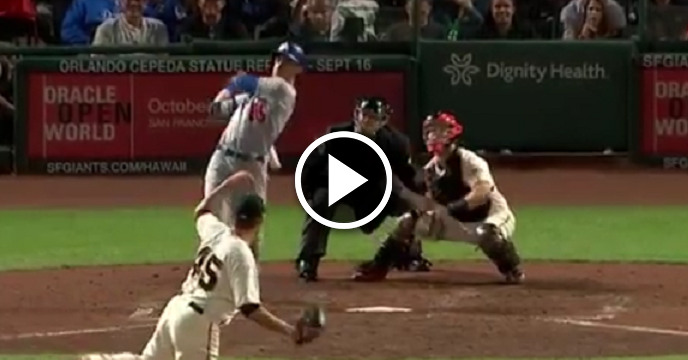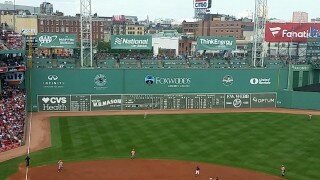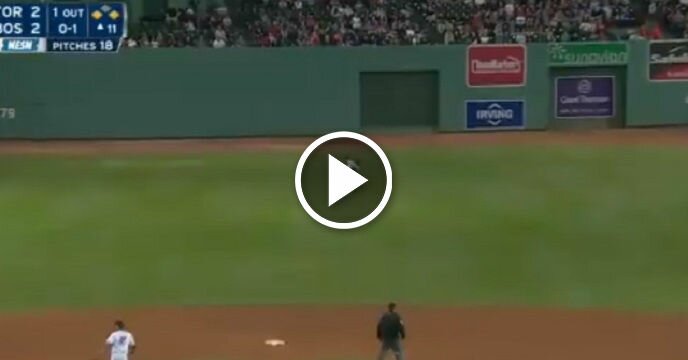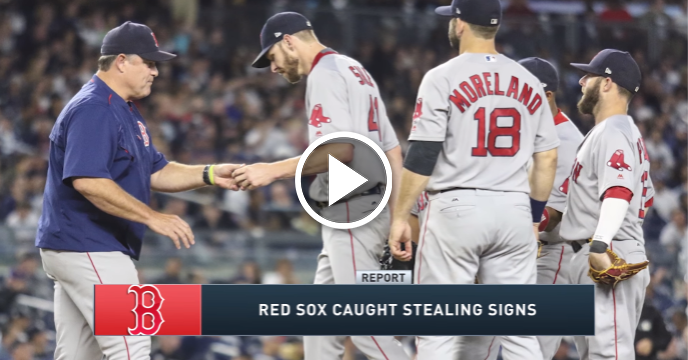The trade deadline in baseball is commonly known as July 31st. It is more accurately the non-waiver trade deadline. That qualification is required to be made because trades can still happen in August, as the current news cycle is telling you. Rarely are the trades quite so big as the one that the Los Angeles Dodgers and Boston Red Sox have completed, which sends Adrian Gonzalez, Josh Beckett, Carl Crawford, and Nick Punto to the Dodgers in exchange for James Loney and prospects Allen Webster, Rubby De La Rosa, Ivan De Jesus, and Jerry Sands. In other words, that’s 11 All-Star appearances, four Gold Glove Awards, and two Silver Sluggers in exchange for two good prospects (Webster and De La Rosa), two mediocre prospects (De Jesus and Sands), and a body to stick at first base (Loney).
When this trade is structured from the framework of what these players have done in their careers, it would seem the Dodgers walk away the clear winners of this deal. After all, they are only two games out of first place in the NL West, and All-Star veterans can only help them clinch their first playoff berth since 2009. However, the Dodgers didn’t trade for the players that Gonzalez, Beckett, and Crawford have been, they traded for who they are. Who they are, right now, has more to do with the money that is owed to them than it does the production they bring to the field, and the Dodgers have taken on all but $11 million of those contracts.
Adrian Gonzalez is owed $110 million from 2013–2017, which actually is a reasonable price for an elite first baseman in today’s market. Gonzalez is certainly the most valuable commodity in this exchange, and very well may have been so coveted by Los Angeles that the blemishes in the rest of the deal could be overlooked. Gonzalez is, however, a 30-year-old player whose 2012 campaign has been significantly worse than his career numbers. Gonzalez posted a .812 OPS with Boston this season, after three straight years with an OPS over .900, and a career OPS of .880 despite playing most of those years in the unfriendly hitter environment of PETCO Park. By all reports, the situation in Boston was not a good one, so a change of scenery could do Gonzalez very well. His first at-bat as a Dodger was a three-run homer, so that’s a good start.
From there, it goes downhill quickly for the Dodgers. Josh Beckett is no longer the Ace he once was, and is closer to a back-of-the-rotation starter. Both his results (5.23 ERA) and the quality of his stuff are clear indicators of his regression. Beckett is owed $17 million in 2013 and 2014.
At one point in time, Carl Crawford was a perennial MVP candidate, or at least he should have been. He never hit for much power, but he made up for that with his speed, getting on base at a high clip, and his defense. He has collected 33.4 rWAR in 11 seasons as a professional baseball player, but only 0.3 of that has come in the last two seasons after he signed a seven-year, $142 million contract with Boston. Now, Crawford is out for the rest of 2012 after undergoing Tommy John surgery this week, and his ability to return on Opening Day 2013 is in question. He is a 31-year-old outfielder with diminished speed that is limited to playing a corner outfield position. For a player who was never much of a hitter (career .774 OPS), that makes him even less of a hitter by comparison. The Dodgers will still owe Crawford $107 million from 2013-2017. Perhaps Crawford is a change of scenery candidate as well, but if part of his struggles in Boston stemmed from being in a larger market than Tampa Bay, a move to Los Angeles cannot be of too much comfort. The Dodgers certainly cannot have lofty expectations for this aging outfielder with a reduced skill-set. Eating Crawford’s contract seems to be the price that Los Angeles had to pay to acquire Gonzalez.
From the Red Sox perspective, this trade makes sense for several reasons. Obviously, it unloads a significant chunk of committed payroll. It also signals a culture change in a franchise that has been moving in the wrong direction ever since its collapse in September 2011. In several ways, Boston can now make a fresh start towards restoring the club to its former winning ways.
The new ownership in Los Angeles is clearly eager to spend their newly available cash reserves after getting out from under the rule of Frank McCourt. A $1.8 billion price tag on the franchise has not stopped the Dodgers from also landing Hanley Ramirez, Shane Victorino, and Joe Blanton in addition to its four new players from this trade. In total, that comes to $271 million of payroll that the Dodgers have absorbed for 2013-2017.
Perhaps the well of cash is never-ending for the Dodgers right now, and they have no qualms about spending it recklessly in order to win in 2012. Flags fly forever, as they say, and for the Dodgers, taking on $271 million of contracts whose value could all be labeled as questionable would be worth it in exchange for a World Series berth or championship. It is not the most efficient or effective way to spend $271 million, but it’s the only way the Dodgers can spend $271 million to help them win this year. Yet, based on how these kinds of spending sprees seem to have played out in the past, the cost will likely far outweigh the benefit.
Join in the conversation with Peter on Twitter by following him @FutureGM
 Share
Share 


